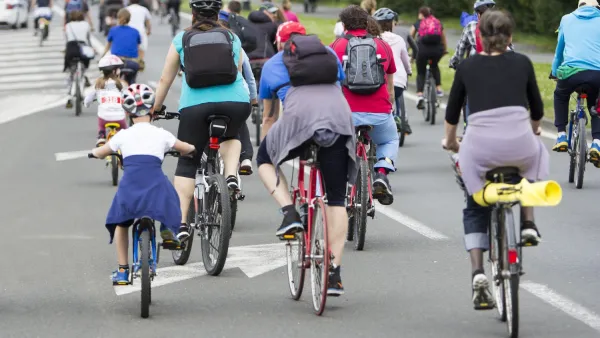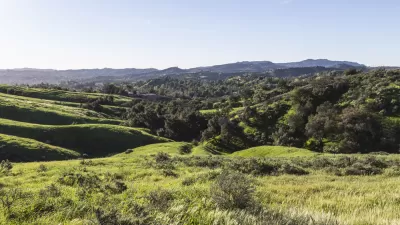Brooklyn Bridge Park's privately funded field house proposal, complete with Olympic-class velodrome, faces criticism over its size, effects on the surrounding neighborhood, and arguments over open space versus space for sports facilities.
Brooklyn Bridge Park, the nascent 85-acre waterfront park still under development, received a $40 million gift from New York native Joshua P. Rechnitz in April - "the largest single gift in the history of New York City's parks system" - for the construction of a field house, complete with a velodrome. As Lisa Foderaro reports for The New York Times, the stadium would allow for almost 2,500 spectators to watch the track-cycling sport on a 200 meter track.
Despite the donor's generosity, some worry about the stadium's effects on the character of the park itself as well as the surrounding neighborhood. "Joan Zimmerman, president of the Fulton Ferry Landing Association, another community group," reports Foderaro,"said she worried that the park was already being nibbled away by structures. 'Putting this large of a building at one of the narrower necks of the park raises the question of what's more important: green space or buildings?' she said."
Others are questioning Rechnitz himself, "he is an avid amateur track cyclist who has tried - and failed - to bring a velodrome to the city. Now, they say, he is buying the track he wants, on public land," says Foderaro.
Others see the stadium as beneficial. "Regina Myer, president of the Brooklyn Bridge Park Corporation, which governs land use in the park, emphasized that 'it's not taking away any green space; the plan always called for that location to be a maintenance building.'"
Still, in order to develop a velodrome on park land, approval from the Brooklyn Bridge Park Corporation, in addition to approval from the state, must be secured.
FULL STORY: A $40 Million Gift, a Proposed Bike Arena, and Now Skepticism in Brooklyn

Planetizen Federal Action Tracker
A weekly monitor of how Trump’s orders and actions are impacting planners and planning in America.

Map: Where Senate Republicans Want to Sell Your Public Lands
For public land advocates, the Senate Republicans’ proposal to sell millions of acres of public land in the West is “the biggest fight of their careers.”

Restaurant Patios Were a Pandemic Win — Why Were They so Hard to Keep?
Social distancing requirements and changes in travel patterns prompted cities to pilot new uses for street and sidewalk space. Then it got complicated.

Platform Pilsner: Vancouver Transit Agency Releases... a Beer?
TransLink will receive a portion of every sale of the four-pack.

Toronto Weighs Cheaper Transit, Parking Hikes for Major Events
Special event rates would take effect during large festivals, sports games and concerts to ‘discourage driving, manage congestion and free up space for transit.”

Berlin to Consider Car-Free Zone Larger Than Manhattan
The area bound by the 22-mile Ringbahn would still allow 12 uses of a private automobile per year per person, and several other exemptions.
Urban Design for Planners 1: Software Tools
This six-course series explores essential urban design concepts using open source software and equips planners with the tools they need to participate fully in the urban design process.
Planning for Universal Design
Learn the tools for implementing Universal Design in planning regulations.
Heyer Gruel & Associates PA
JM Goldson LLC
Custer County Colorado
City of Camden Redevelopment Agency
City of Astoria
Transportation Research & Education Center (TREC) at Portland State University
Camden Redevelopment Agency
City of Claremont
Municipality of Princeton (NJ)





























